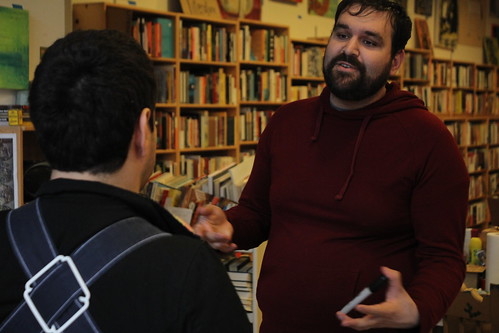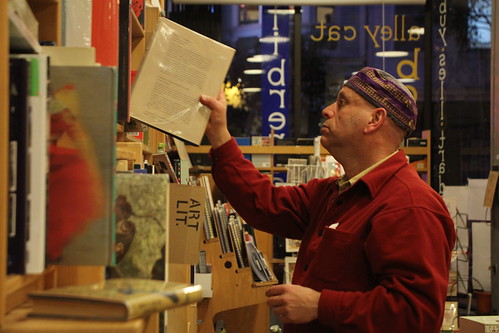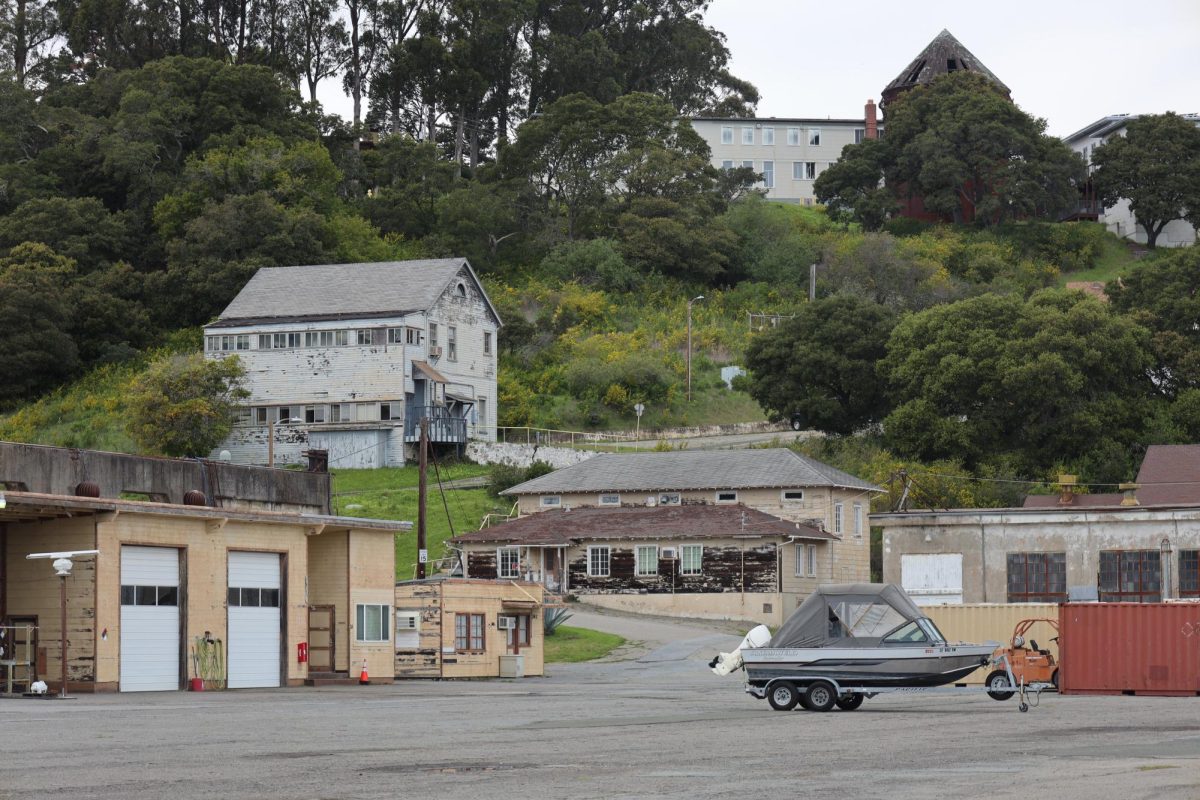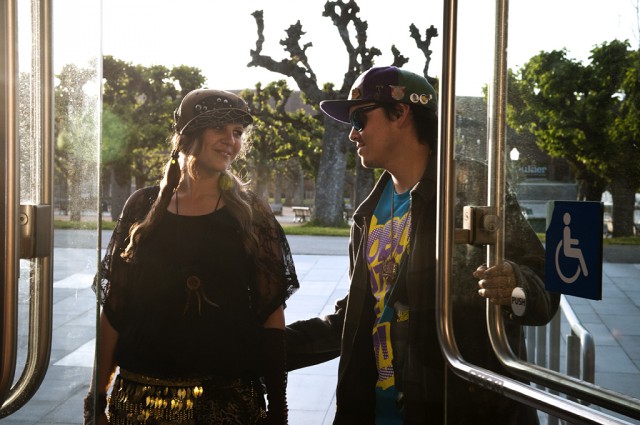
Written by Victor M. Rodriguez
Walking in from the busy streets of the Mission, the ambient smells penetrate the nostrils and carry a familiar coffeehouse scent. The perpetual shelves squeezed tightly together display books, from the latest to the greatest. Either by curiosity or assignment, a title is found. As the first few pages are read, a sanctuary for knowledge is once again found, free from the technology that is striking down heavy covers and bound papers.
Despite the growing trend of people relying on thin machines like iPads and e-readers to obtain readings, Kate Rosenberger comprehends that there is nothing like sitting down to turn the pages as the story progresses.
“There is a romance that comes from reading a book,” says Rosenberger, who owns four bookstores in San Francisco. “No pleasure really comes from picking up plastic as when picking up a book to sit down and read.”
Rosenberger combined her passion for reading with an interesting business endeavor about 26 years ago when she and an associate opened Phoenix Books on 24th Street in Noe Valley. Since then, three more stores now offer the same services, including its largest that resides in the Mission district, Dog Eared Books.
“The whole idea about bookstores closing has always been around,” explains Rosenberger. “But people build too much of a relationship with books for paperbacks to just disappear.”
Though she opens a bookstore every seven or so years, Rosenberger strives to appeal to different interests, like art and news, while giving the community a place to fine-tune their literacy.
Other places also see fit to move into a new location. Modern Times Bookstore, which was open on Valencia Street in the Mission for 20 years up until June of 2011, now opens its doors each morning to a loyal clientele just a few blocks southeast on 24th Street. Despite the smaller space, the premise of selling books remains the same.
“It became hard to afford the rent,” says Ruth Mahaney. “But the plan was to make sure we stay in the Mission.”
Mahaney has been a collective owner since 1973, and the decision to stay in the neighborhood serves the purpose of being part of a community that needs places like these.
“We’re trying to stay alive because just like people want books, we also help them fight for justice.”
It could mean many things, but some of the key strategies for these neighborhood stores are to offer a place for like-minded peers who seek to extend their knowledge.

“We normally hold different events from open mics to poetry readings,” says John Escamillo, one of the newer members of the Modern Times family. “We also support important movements such as Occupy Wall Street.”
Standing behind a glass display and greeting customers with a smile, Dan Weiss prepares a film event at Alley Cat Books, the newest of Rosenberger’s stores. Carrying a popcorn machine to the vast space behind the shelves that categorize books in French, he recounts, “Spearheading this short film night, it’s just one of many events yet to come.” Though the turnout rate is a bit small, the purpose, according to Weiss, is to build a community presence and offer their clients an “artistic hub,” a place that will also sometimes feature a band or poetry night.
With the closing of Borders, a major retailer of books that had a strong presence all over the country, one might think that bookstores everywhere will be coming down. If not now, then sometime in the near future. NPR reports that almost four hundred Borders bookstores closed last September, a mix of various factors contributing to its demise. Among those, perhaps the biggest ones are e-book and finding better prices online.
“The rise of corporate book-selling came in the 90s,” says Weiss. “But at some point, some of these corporations are bound to fold because people will find alternatives to buying it in these stores.”
Weiss ascertains that while these huge stores offer a good amount of books, they have no character and usually serve as a reference point. That relationship with the community is not built.
However, local bookstores beg to differ, and they are still fighting the good fight to preserve literacy, culture, and knowledge amid growing apathy. San Francisco is probably one of the few cities exempt from the notion of disappearing books, according to Weiss.
“The Internet has served to make more readers out of us,” he says. Thus, the attempts of the stores can be seen as Ernest Hemingway describes guts: grace under pressure.




![Hashem Mishal using an angle grinder to cut a drill bit, in the SAE team’s garage at SF State on Tuesday, Nov. 12, 2024. “We don't get anything from the school other than this workshop,” Mishal said. “Our advisor, he runs the shop, and he also works with us to try and get as [many] opportunities as possible. So it was really nice, in helping us get this space, but all the tools are just some of the guys’ or third parties’. I don't know where these tools came from, but a lot of it was sponsors, donations from alumni. Right now, all the hardware we’ve been paying out of pocket for the time being.” (Jonah Chambliss / Xpress Magazine)](https://xpressmagazine.org/wp-content/uploads/2024/12/Chambliss_F1_001_LEDEPHOTO-1200x800.jpg)





